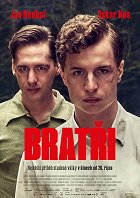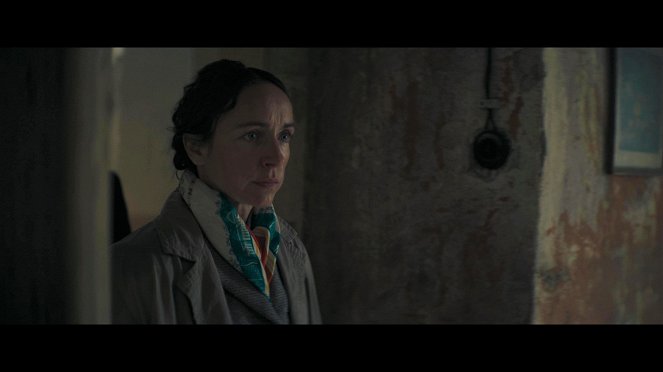Director:
Tomáš MašínGuión:
Marek EpsteinCámara:
Friede ClauszMúsica:
Karel HavlíčekReparto:
Oskar Hes, Jan Nedbal, Tatiana Dyková, Adam Ernest, Stefan Konarske, Karolína Lea Nováková, Matěj Hádek, Matyáš Řezníček, Tony Mašek, Václav Neužil ml. (más)Sinopsis(1)
Based on a true story. The Year is 1953, and the Masin family is persecuted for its bourgeoisie ancestry under communist-ruled Czechoslovakia. Stripped of their assets, brothers Radek and Josef believe that the only way to fight oppression is with guns in their hands. The brothers form an underground boy army responsible for a series of violent acts leading to an investigation by State Security Captain Koller. The Masin brothers became the most wanted men in the country. They attempt to emigrate to West Berlin to join the US Army and help liberate Czechoslovakia from the communists. Still, Captain Koller has not given up and mobilises a military operation, the size of which has not been seen since World War II, resulting in one of the largest manhunts in modern history. (Cinemart)
(más)Reseñas (3)
A cautious and selective Wikipedia entry that replaces psychologising with affected external “pictures from history”. Brothers is the most effective when it abandons its simple moral universe and focuses only on survival and determination, which perhaps best defines both Mašín the director and Mašín brothers in the film. It’s not as foggy as other Czech attempts to reflect on the bad old days of the 1950s, but it suffers from similar shortcomings in its characterisation of the period and the servants of the regime. Brothers too reverentially zigzags and hides behind what might be defined as “historical necessity” for it to really say something about the problematic issue of violent resistance and moral choices. Nevertheless, no one can deny that it offers solid directing, cinematography, editing and acting.
()
Buena realización técnica, contenido vacilante. Desafortunadamente, el elemento menos interesante de la película Brothers son los hermanos titulares. Debido a su carácter controvertido, el guion no se atreve a brindar cualquier opinión de ellos o sobre ellos, por lo que uno no aprende absolutamente nada sobre sus pensamientos, emociones, dudas y posibles arrepentimientos (los protagonistas simplemente están interiormente vacíos; no tienen ningún conflicto interno; no se desarrollan; no parecen vivos). Incluso su motivación principal se presenta simplemente como algo que está allí por obligación, y parece acortada y no terminada. La película funciona más en las escenas con Tatiana Dyková en el papel de una madre abatida, que añade quizás el único elemento verdaderamente humano a la historia. Sorprendentemente, la película avanza muy bien en términos de acción y la esperada persecución en la segunda mitad está rodada de forma muy densa y emocionante, muy buena por encima de lo habitual para una producción checa. Vale la pena verla, independientemente de cuál sea su opinión sobre los hermanos Mašín, pero enviar estas cosas como representantes checos para luchar por el Oscar demuestra que estamos muy mal.
()
On the eve of this year's Czech Lions, the choice fell on the film with the most nominations and also our foreign-language candidate for the Academy Awards. Brothers could have at least taken a back seat to more promising projects for the Oscars, as it is an at times overly aloof and stilted biographical drama that, like the opinions on the real brothers, comes across as controversial. The film would have benefited from a shorter running time and a stronger coherence between scenes (especially in the first half). That said, I commend the action sequences depicting the brothers' movements in Eastern Germany, as well as the scenes with the female cast (Tatiana Dykova and Karolina Lea Nováková), which were powerful to the point of being chilling. Better three stars!
()

